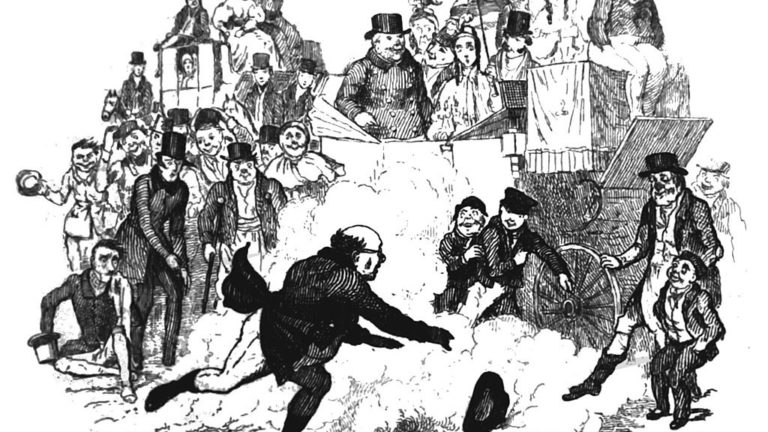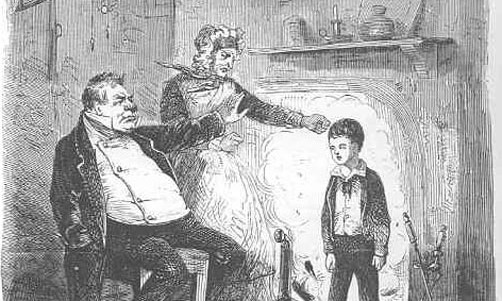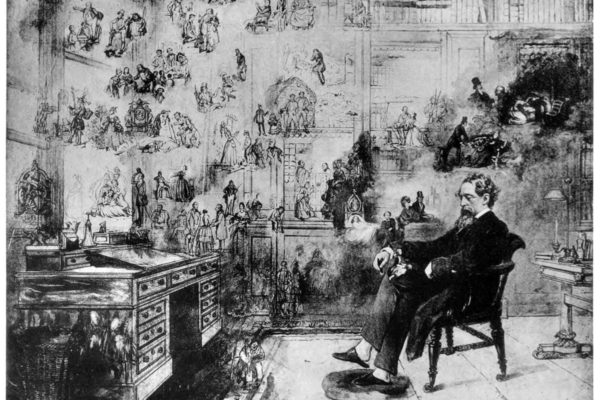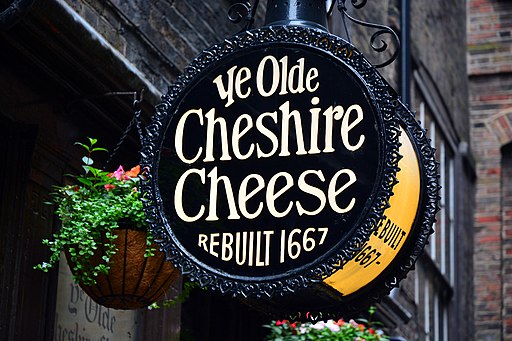I ended my January newsletter with the word ‘fanteeged’. I meant fatigued, but it seems to suggest fantastic, too. Sam Weller uses it in Pickwick Papers, referring to Mr Pickwick. And you would have been ‘fanteeged’ had you participated in a ‘farinagholkajingo”, a word which Dickens uses in Sketches by Boz (The Dancing Academy). It comes in a list of dances provided by the academy. There are gavottes and fandangos, minuets and quadrilles as well as the ‘farinagholkajingo’. Dickens is laughing at the pretensions of the dancing school which offers the latest in dancing for the person who wishes to rise in society. And should you be over-fanteeged by such vigorous exercise – corsets too tight, perhaps – the dancing master’s daughter will be ready with her ‘hartshorning’ technique – hartshorn was used for smelling salts, always available for a touch of the hysterics. Hartshorn is, of course, a noun, but Dickens turns it into a present participle together with ‘vinegaring’ to describe the treatment of the over-heated Mrs Varden in Barnaby Rudge. ‘Miss Miggs herself partook as a preventative measure for fainting is infectious.’
Dickens coined adjectives from the names he invented for his characters thus we have ‘pecksniffian’ after Mr Pecksniff in Martin Chuzzlewit whose name tells us all we need to know about his vanity and self-righteousness. Pumblechookian refers to Mr Pumblechook in Great Expectations – a hypocrite of the first rank who appears to choke on his own pomposity and greed. Dickens invents a noun for Mr Podsnap who appears in Our Mutual Friend – he is the epitome of ‘podsnappery’ – a state of being absolutely convinced of one’s own superiority.
And there’s an adjective ‘smallweedy’ for the Smallweeds in Bleak House – a particularly gruesome family. Grandfather Smallweed is a miser who brings up his grandchildren in the trade of getting what you can from anybody fool enough to come into your clutches. ‘Live at his expense as much as you can,’ is Grandfather Smallweed’s sage advice to his grandson on the subject of the usefulness of friends. Granddaughter Judy ‘never owned a doll, never heard of Cinderella, never played at any game.’ Her twin, Bartholomew, is made of the same metal. Iron seems to be the favoured metal of the Smallweeds. We encounter Judy crashing an iron tray down and putting bread in an iron basket, and being generally ‘smallweedy’.
Silas Wegg in Our Mutual Friend is another thoroughly bad lot – his intention is to bring down Mr Boffin and relieve him of his fortune. His partner, Mr Venus, repents and confesses the scheme to Mr Boffin, admitting that he had been tempted into the path of ‘weggery’. Silas Wegg has a wooden leg – you might say that Venus is caught up in the business of wooden leggery for his trade is in taxidermy and the articulation of bones. Silas has come to visit his wooden leg. He asks ‘Am I still at home?’ He is at home. Mr Venus is unable to make anything of Wegg’s leg for it has a ‘twist in the bone.’ Venus bought it from a hospital porter, one of a ‘warious lot’. His stock is various, too: ‘Skulls, warious. Preserved Indian baby. Cats. Articulated English baby. Dogs. Ducks. Glass eyes, warious…’ Gives you ‘creeps’ – another word coined by Dickens.
Dickens invented his own name for his early writings. He was ‘Boz’ – taken from the pet name ‘Moses’ which Dickens gave to his young brother, Augustus, who pronounced it as ‘Boses’. Very Dickensian – a word which appears in a letter of 1842 in the magazine John Bull. The letter, mostly in Latin, states the writer’s preference for the works of Mr Dickens over the works of Dean Swift and he uses the word ‘Dickensian’ in a rather obscure discussion of Dickens’s portrait of a lady’s maid. This may well be the first use of the word which, according to the OED, seems to have come into use in the 1880s. Everyone knows what it means now. I think I might be ‘Dickensian’.





Well ! What do you know?
I wish I could remember some of those words; there are times in one’s life when only they will do.
No wonder you have trouble with your computer -how hard it has to work digging out all that stuff!!!¬
B xx